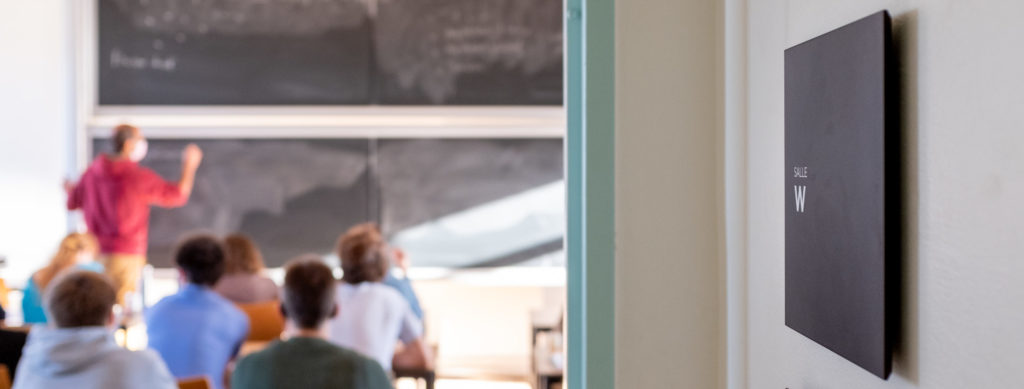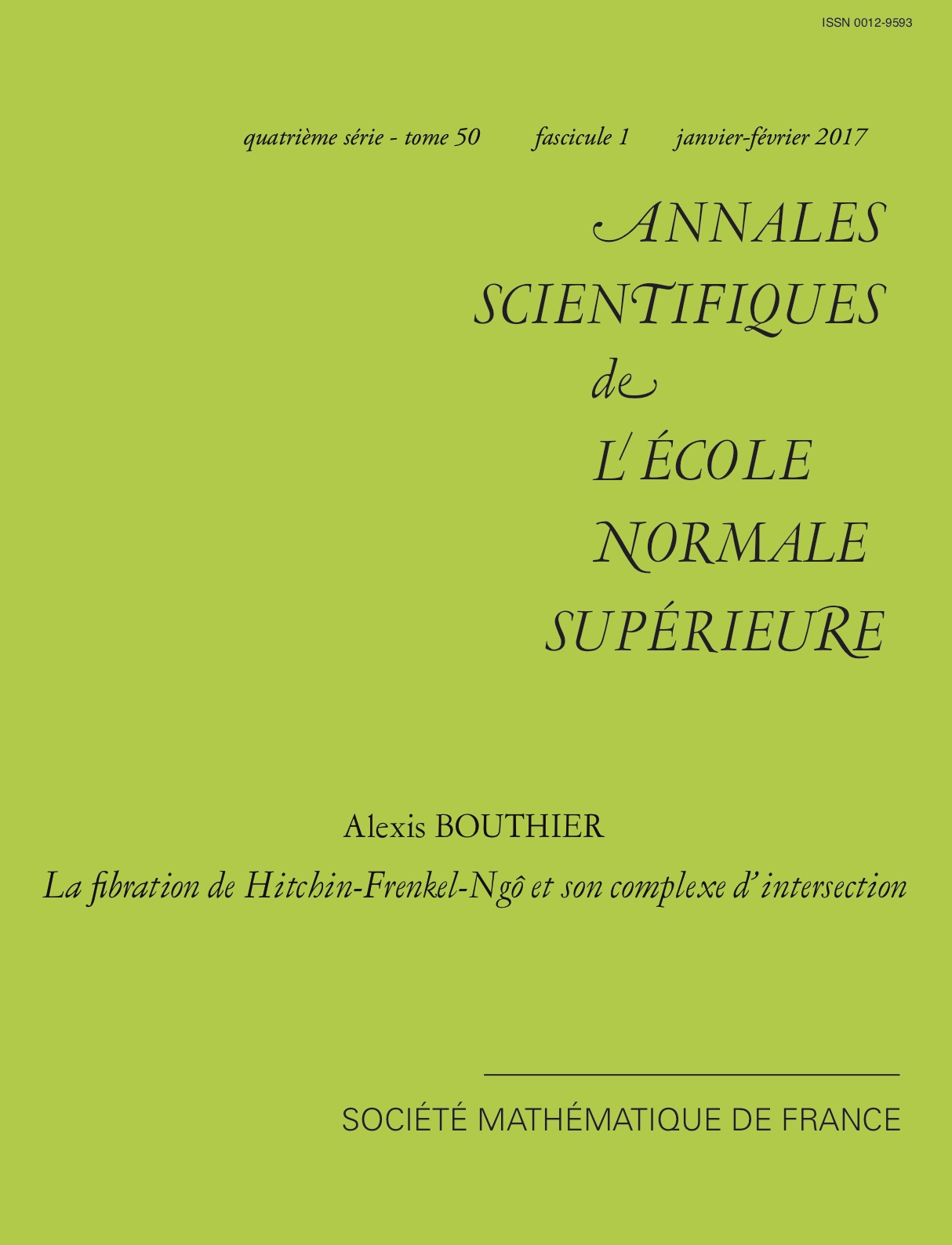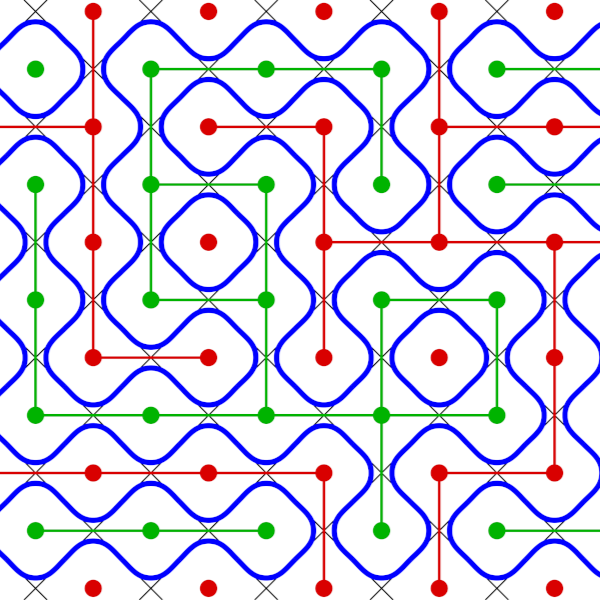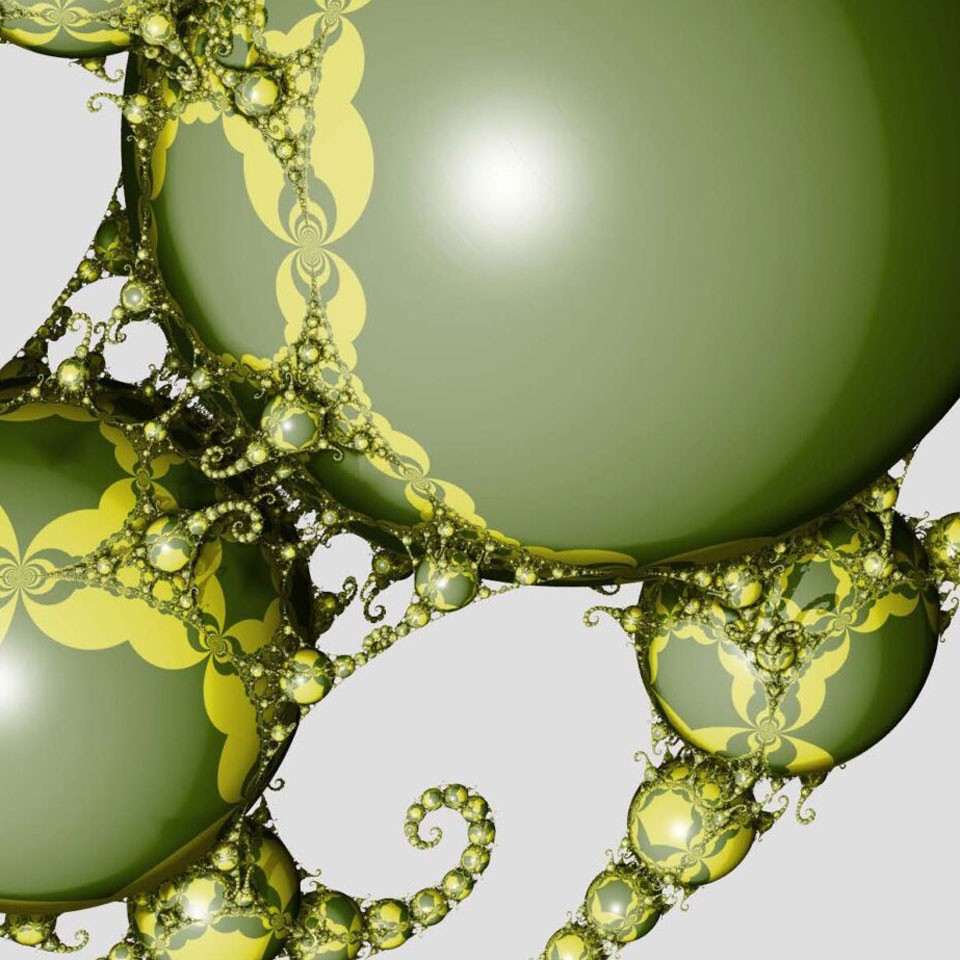
Activités scientifiques du département
Le DMA est à la fois un département d'enseignement et un département de recherche. Cette structuration originale vise notamment à mettre très tôt les élèves au plus près de la recherche en train de se faire.
Publications
L'essentielle de publications des membres du département, des thèses et des HDR qui y sont soutenues sont disponibles sur le serveur HAL.
-
4 July 2025 hal-00004948 publication
Le perimètre d'une partie mesurable de $\mathbb R^N$ est la variation totale de sa fonction caractéristique. On en donne une généralisation au cas d'une partie $E$ d'une variété riemannienne compacte orientée. On montre que ce périmètre est la limite des variations totales des régularisées de $\chi_E$ par le noyau de la chaleur. On en déduit une inégalité isopérimétrique, et une formule de type Fleming-Rishel. On applique ensuite ces résultats à un problème quasilinéaire elliptique dans $\mathbb R^N$, pour lequel les méthodes usuelles de symétrisation dans $\mathbb R^N$ achoppent, mais que l'on pourra traiter en introduisant une méthode de symétrisation sur $S^N$.
Satyanad Kichenassamy
-
9 July 2025 hal-05152340 pré-publication
We establish minimax convergence rates for score-based generative models (SGMs) under the $1$-Wasserstein distance. Assuming the target density $p^\star$ lies in a nonparametric $\beta$-smooth H\"older class with either compact support or subGaussian tails on $\mathbb{R}^d$, we prove that neural network-based score estimators trained via denoising score matching yield generative models achieving rate $n^{-(\beta+1)/(2\beta+d)}$ up to polylogarithmic factors. Our unified analysis handles arbitrary smoothness $\beta > 0$, supports both deterministic and stochastic samplers, and leverages shape constraints on $p^\star$ to induce regularity of the score. The resulting proofs are more concise, and grounded in generic stability of diffusions and standard approximation theory.
Arthur Stéphanovitch, Eddie Aamari, Clément Levrard
-
16 April 2025 tel-05036943 thèse
This thesis intends to make a contribution to the theories of algebraic cycles and moduli spaces over the real numbers. In the study of the subvarieties of a projective algebraic variety, smooth over the field of real numbers, the cycle class map between the Chow ring and the equivariant cohomology ring plays an important role. The image of the cycle class map remains difficult to describe in general; we study this group in detail in the case of real abelian varieties. To do so, we construct integral Fourier transforms on Chow rings of abelian varieties over any field. They allow us to prove the integral Hodge conjecture for one-cycles on complex Jacobian varieties, and the real integral Hodge conjecture modulo torsion for real abelian threefolds. For the theory of real algebraic cycles, and for several other purposes in real algebraic geometry, it is useful to have moduli spaces of real varieties to our disposal. Insight in the topology of a real moduli space provides insight in the geometry of a real variety that defines a point in it, and the other way around. In the moduli space of real abelian varieties, as well as in the Torelli locus contained in it, we prove density of the set of moduli points attached to abelian varieties containing an abelian subvariety of fixed dimension. Moreover, we provide the moduli space of stable real binary quintics with a hyperbolic orbifold structure, compatible with the period map on the locus of smooth quintics. This structure identifies the moduli space of stable real binary quintics with a non-arithmetic ball quotient.
Olivier De Gaay Fortman
Les actualités de la recherche
Annonce de conférences, congrès et autres événements scientifiques.
-
Andreea Iorga, professeure invitée junior ENS au DMA jusqu’au 7 juillet
En poste à Cornell University, ses travaux portent sur la théorie algébrique des nombres, avec
-
Statistical Physics and Mathematics : lancement du Grand Programme de recherche de l’Université PSL
La journée de lancement du Grand Programme se déroulera au DMA le lundi 2 juin
-
Higher rank geometric structures – école introductive au CIRM du trimestre thématique de l’IHP
Co-organisée par Nicolas Tholozan avec le soutien financier du DMA, ce trimestre thématique de

Annales de l’ENS
Les Annales scientifiques de l’École normale supérieure publient 6 fascicules par an. Elles sont éditées par la Société mathématique de France depuis 2008.





